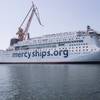Strike Club Weighs in on Port Strikes
The news this week that a longshoremen’s strike had effectively stopped cargo operations at the port of Baltimore, a major hub for foreign car imports into the U.S., underlines a new warning by The Strike Club. Strikes by stevedores continue to dominate the list of perils causing delays, reports the mutual insurer after a recent analysis of its claims files.
In the 2012-2013 policy year, they accounted for 16.8%, followed by collision (14.4%), closure of port or sealane (13.6%), and strikes by port workers (also 13.6%). Total net claims for the year were $16.8m, with mutual claims accounting for $12.0m net.
A somewhat similar picture emerges from a review of the five-year period 2008-2013: closure of port or sealane (17.2%), collision (15.1%), strikes by stevedores (13.6%) and by port workers (10.9%).
Significantly, delays caused by machinery damage are rising, being at 10.5% for the five-year period.
Several major terminal/port operators have confirmed recently that increasing labor costs are driving port automation forward, the club states, which can only lead to continuing labor unrest and the specter of more widespread strike actions.
South America is a particular black spot, and in the last year a large number of strikes there affected numerous ships entered in the club, generating claims totaling $4.8m. A strike involving one section of the workforce can quickly spread to others in the transport chain. For example, Argentinian ports were hit by strikes involving boat clerks, customs, dock workers, farmers, seamen, shore personnel, truck drivers and general labor unions.
Chile suffered another bad year for trade disruptions, with some strikes of short duration now being accepted as the norm: strikes by stevedores and port workers, as well as
political and civil unrest, all contributed to significant loss of time.
The club has reiterated that operators are increasingly exposed to financial losses caused by delay to their vessels; their exposure will be governed by whether they are charterer or owner, and the contractual basis on which the vessel is operated. Class I and II cover applies to shore-related events, and Class III to ship-related events.
Now in its 56th year of operation, The Strike Club, with a BBB+ rating, is the acknowledged market leader for insuring marine trade delays. It has a global presence with its membership spanning 47 countries across all continents.
It has had a risk management program in place since 2008. Among other things this involves the maintenance of a comprehensive risk register in which all material risks are identified, and their probability of occurring and their potential impact on the club assessed.
Bill Milligan, chief executive of S.C. Management, explains that a partial evaluation of the risk management parameters is carried out three times a year, with a full review and analysis presented to the audit committee on an annual basis. “This is one of a number of initiatives we are undertaking to improve and hone our services to members,” he said.
“In spite of signs of an economic recovery, trading conditions remain extremely challenging for the shipping industry, and the consensus of opinion is that a lasting improvement will not move into sight for many trades until 2015.
“Against this background, delays of any kind are an anathema on owners and charterers, and indeed for all those engaged in the transport chain from discharge of cargo onwards.
“In the meantime, ship operators can avail themselves of financial protection against unexpected delays on the basis of mutuality but with additional fixed-premium bolt-ons for war risks, loss of earnings and bespoke delay risks.”
Mr. Milligan added, “Over the years, the club has flourished by sticking to its original aim of being in partnership with ship operators in good times and bad. It does this by offering at modest cost and very low deductibles a range of insurance options with flexibility at the core.”










